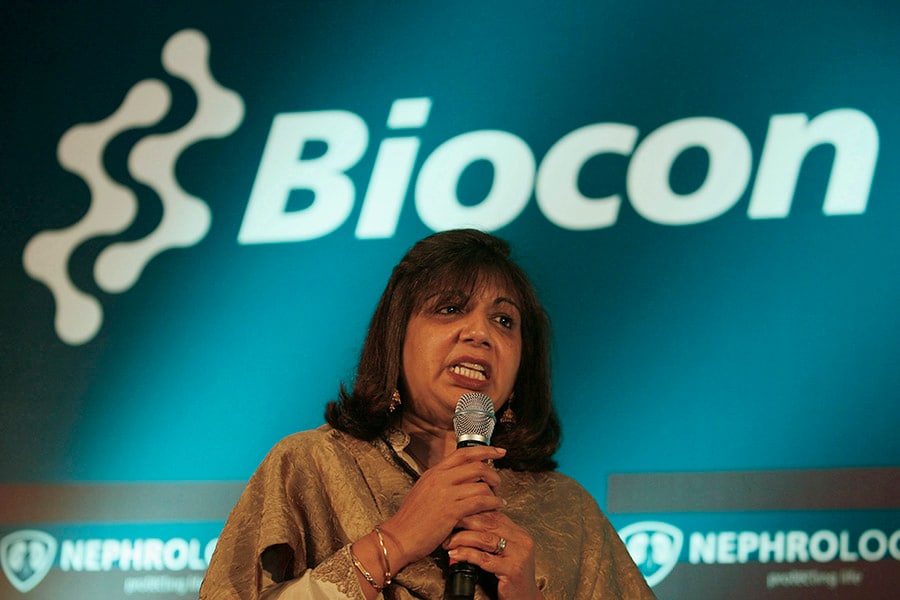
Biocon strikes partnership with Sandoz to tap biosimilars opportunity
The companies will jointly develop and market the 'next generation' of bio-generics for medicines treating immune disorders and cancer

Kiran Mazumdar-Shaw, Biocon’s chairperson and managing director
Image: Jagadeesh Nv / Reuters
Image: Jagadeesh Nv / Reuters
Biocon has struck a partnership with Sandoz, a unit of pharmaceuticals company Novartis AG, to jointly develop and market biosimilars, or generic versions of existing bio-drugs, in markets around the world, the Mumbai-listed biopharma company said in a press release on Thursday.
The partnership will extend Biocon’s efforts to produce biosimilars, get approvals in America and Europe, beyond the one it has with Dutch company Mylan NV, Biocon said in its release. Mylan is marketing Biocon’s biosimilar of Trastuzumab, a breast cancer drug, which recently became the first such bio-generic to be approved in the US.
Biosimilars, or close copies of existing biologics, as the biologically produced molecules are called, are now widely seen as the next big opportunity for drug companies, as the originals come off patent protection. For instance, America will open up as a market for biosimilars of Trastuzumab, sold as Herceptin by Roche, the original drug maker, in 2019.
The partnership with Sandoz, Novartis’s generics unit, will help Biocon become an “end-to-end” operation — meaning from development to marketing of the biosimilars — at a much larger scale, billionaire Kiran Mazumdar-Shaw, Biocon’s chairperson and managing director, said in the release.
A bio-generic version of trastuzumab is already sold in other markets including India, where Biocon got approval in 2014. The Approval in the US, in December, marked a major milestone for Biocon, and for the Indian pharma industry as well, which grew to become a large sector on the back of generic versions of chemical drugs, over the last 25 years.
Chemical drugs are easier to make in factories, and to get approvals for. Biologics are much more complex, produced biologically, meaning from cells of living organisms such as yeast and bacteria, but also human and animal cells. Their approvals too require much tougher processes and therefore entail corresponding investments. This has thus far been a deterrent to Indian drug companies, but Biocon’s recent win in the US could change that.
Biocon and Sandoz will “develop, manufacture and commercialize multiple biosimilars in immunology and oncology for patients worldwide,” the Indian biopharma company said in its release. Both companies are to share responsibility for end-to-end development, manufacturing and global regulatory approvals. They will share in the costs and profit accordingly. Sandoz is to lead commercialization in North America and the EU while Biocon will lead commercialization in the rest of the world, including India, Russia and the CIS countries.
Biocon has successfully launched its insulin glargine in Japan, biosimilars of Trastuzumab and Bevacizumab in India and rh- Insulin, Insulin Glargine and biosimilar Trastuzumab in few emerging markets. Sandoz has five biosimilars currently marketed worldwide, and more in its pipeline.
X





